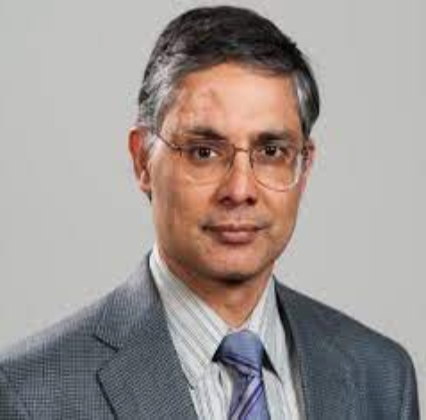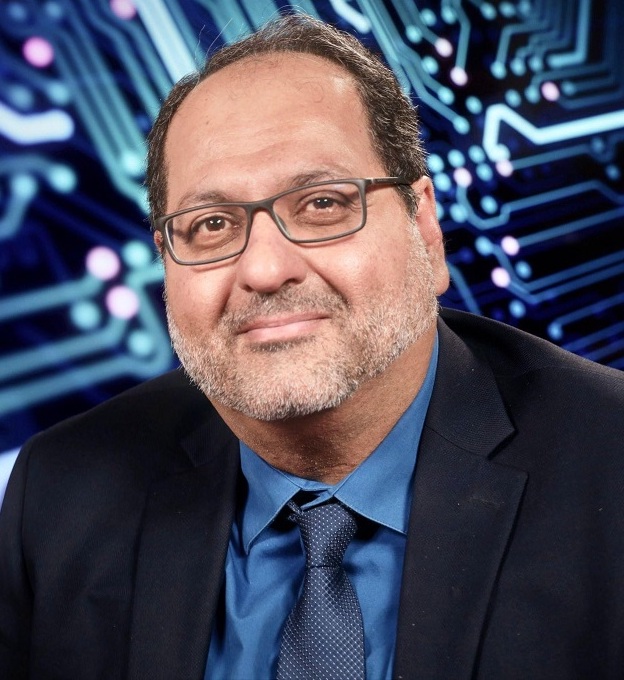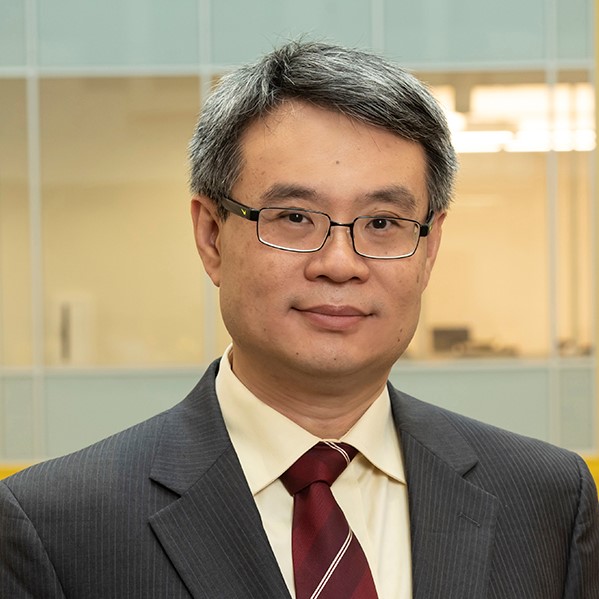IEEE SmartSys 2022
Smart Service Systems
Seventh IEEE International Workshop on Smart Service Systems
SmartSys 2022
20 June, 2022 | Aalto University, Espoo, Finland
http://smartsys2022.dii.unipi.it
Co-located with the IEEE International Conference on Smart Computing (IEEE SMARTCOMP 2022)
IEEE SMARTCOMP 2022 will take place as an in person/remote hybrid event.
Technology succeeds when it provides benefits to society either directly or indirectly. Understanding the social and economic impact and human-centered aspects of a smart system or technology in advance and designing the system apriori with potential value-added services help spur the discoveries of new tools, methodologies, and innovative services. Smart service systems span across various socio-technical facets comprising devices, people, organizations, environments, and technologies to sense, actuate, control, and assess the physical, cyber, and societal artifacts of the human service systems. These self-adaptive and fault-tolerant systems require the design to continuously increase the quality and productivity, compliance, and sustainability of the smart services it offers. A human-centered perspective and cognitive learning help create multi-facet value-added services and catalyze the sustained economic growth of these smart service systems. Furthermore, understanding the multi-modal sensing, control, heterogeneity, and interdependency between different physical, virtual, and logical components of such a complex system will enable the realization of new transformative smarter service systems. If successful, this can help improve the quality-of-service of the customers, quality of life of the citizens, and quality-of returns of the stakeholders and investors.
Nurturing the development of smart service systems seeks inter-and trans-disciplinary crosscutting research threads from the system and operational engineering, computer science and information systems, social and behavioral science, computational modeling and industrial engineering, etc. This workshop aims to bring together practitioners and researchers from academia and industry to disseminate and share knowledge via the discussion forum and technical presentations on smart service systems' fundamental knowledge and principles. We envision these smart systems enabling the value co-creation in sensing, actuating, data analytics, learning, cognition, and control of human-centric cyber-physical-social systems and future work.
Topics of interest include, but are not limited to:
- Innovative technologies, tools, methodologies and solutions for smart service systems; example includes personalized healthcare, smart energy, smart cities, smart manufacturing, intelligent transportation, education, precision medicine and agriculture, national security etc.
- Information extraction and interpretation from sensors, actuators, smart phones, smart watch, and human.
- Context and situational-awareness of smart service systems.
- Design of people-centric services and technologies for providing better services such as food, transportation and places to live.
- Novel architectures and interoperable solutions for internet of things.
- Models and methodologies for designing complex smart systems.
- Big data analytics approaches for providing better customer services, and innovating sustainable services.
- Modeling, analysis, co-production, and co-evolution of human activity, behavior and interaction for the effective adaptation and percolation of longitudinal smart service systems.
- Role of machine learning, artificial intelligence, robotics, pervasive computing, control theory, information and communications technologies.
- Role of formal methods in computer networks, cyber-physical systems, Internet-of-Things and machine learning.
- Design and developments of intelligent systems, intelligent enterprises and cyber-physical-social-systems.
- Design of inter-dependent complex global systems such as healthcare, smart grid, computer networks, logistics and supply-chains, financial markets etc.
- Smart infrastructure and testbed to support the integration and test of autonomous systems and innovative applications
- AI/ML application in pervasive computing and integrated embedded devices and systems.
- AI/ML on Edge and Cloud computing services, methods, and applications.
- Design and development of research prototype of new concept and empirical validation of homogeneous and/or heterogeneous data-driven smart systems.
SmartSys Program
08:45 - 09:45 (EEST)- Keynote
09:45 - 10:00 (EEST)- Welcome
10:00 - 11:00 (EEST)- Session #1 - Smart System Design: IoT and CPS
(15min paper presentation + 5min questions)
Chair: Francesca Righetti, University of Pisa
- Betty Lala, Srikant Manas Kala, Anmo Avdheshkumar Rastogi, Kunal Dahiya, Hirozumi Yamaguchi, Aya Hagishima, Building Matters: Spatial Variability in Machine Learning Based Thermal Comfort Prediction in Winters.
- Bokai Cao, Congcong Zhan, Weigang Wu, Jieying Zhou, Reuse of Client Models in Federated Learning.
- Maurizio Palmieri, Carlo Vallati, Giuseppe Anastasi, Cinzia Bernardeschi, A workflow for designing an on-line supervisor for cyber-physical systems: a case study.
11:00 - 11:30 (EEST)- Coffe Break
11:30 - 12:30 (EEST)- Session #2 - Secure and Smart AI Systems
(15min paper presentation + 5min questions)
Chair: Carlo Vallati, University of Pisa
- Zhiqin Cheng, Jinlin Chen, Jiannog Cao, ManiWare: An Easy-to-Use Middleware for Cooperative Manipulator Teams.
- Giancarlo Sciddurlo, Antonio Petrosino, Domenico Striccoli, Giuseppe Piro, Luigi Alfredo Grieco, Gennaro Boggia, Boosting Service Provisioning in SIoT by Exploiting Trust and Capability Levels of Social Objects.
- Sofia Belikovetsky, Francesco Longo, Antonio Puliafito, Asaf Shabtai, Yuval Elovici, 3D Marketplace: Distributed Attestation of 3D Designs on Blockchain.
12:30 - 13:30 (EEST)- Panel - AI and Autonomy for Smart Services
13:30 - 14:00 (EEST)- Lunch
14:00 - 15:00 (EEST)- Keynote
15:00 - 16:00 (EEST)- Session #3 - Context aware applications
(15min paper presentation + 5min questions)
Chair: Hafiz Khan, Kennesaw State University
- Hamed Darbandi, Filipe Serra, Berend Jan van der Zwaag, Paul Havinga, Accurate horse gait event estimation using an inertial sensor mounted on different body locations.
- Indrajeet Ghosh, Mathew Ivler, Sreenivasan Ramasamy Ramamurthy, Nirmala Roy, SpecTextor: End-to-End Attention-based Mechanism for Dense Text Generation in Sports Journalism.
- Andrew S. Funchs, Andrea Passarella, Marco Conti, A Cognitive Framework for Delegation Between Error-Prone AI and Human Agents .
Panel - AI and Autonomy for Smart Services
The future of smart service systems is changing with the proliferation of a multitude of autonomous systems and services such as autonomous driving, precision agriculture, food and nutrition services, smart home and remote healthcare to name a few. To fully realize the fullest extent of these smart services and systems, a conglomeration of techniques such as AI and ML with resilient communications and control, reliability, and autonomy is of utmost importance. This panel will discuss recent advances and future research directions in AI and autonomy for autonomous systems and services.
Panel Moderator:
Dr. Gurdip Singh
Division Director, Computer and Network Systems (CNS)
CISE Directorate
National Science Foundation
Panelists:
Prof. Ness Shroff, Ohio State University
Ohio Eminent Scholar in Networking and Communications
Chaired Professor of ECE and CSE
Prof. Yiran Chen, Duke University
Department of Electrical and Computer Engineering
Department of Computer Science
Prof. Franco Zambonelli,
University of Modena and Reggio Emilia, Italy
Department of Computer Science
Biographies:

Dr. Gurdip Singh is the Division Director for Computer and Network Systems in the CISE Directorate at National Science Foundation. He is currently on leave from Syracuse University where he was the Associate Dean for Research and Graduate Programs of the College of Engineering and Computer Science. He previously served as Program Director in the Division of Computer and Network Systems in the CISE Directorate at NSF from July 2014 to August 2016. From 2009 and 2014, he was the Head of Computer Science Department at Kansas State University, and Graduate Program Director from 2006 to 2009. Dr. Singh earned his MS and PhD degrees in Computer Science from SUNY, Stony Brook in 1989 and 1991 respectively, and his B. Tech degree in Computer Science and Engineering from IIT Delhi in 1986. His research and teaching interests include real-time embedded systems, sensor networks, network protocols and distributed computing.

Dr. Ness Shroff (S'91-M'93-SM'01-F'07) received the Ph.D. degree in electrical engineering from Columbia University in 1994. He joined Purdue University immediately thereafter as an Assistant Professor with the School of Electrical and Computer Engineering. At Purdue, he became a Full Professor of ECE and the director of a university-wide center on wireless systems and applications in 2004. In 2007, he joined The Ohio State University, where he holds the Ohio Eminent Scholar Endowed Chair in networking and communications, in the departments of ECE and CSE. He currently serves as the Institute Director of the NSF AI Institute for Future Edge Networks and Distributed Intelligence (AI-EDGE. He holds or has held visiting (chaired) professor positions at Tsinghua University, Beijing, China, Shanghai Jiaotong University, Shanghai, China, and IIT Bombay, Mumbai, India. He has received numerous best paper awards for his research and is listed in Thomson Reuters' on The World's Most Influential Scientific Minds, and has been noted as a Highly Cited Researcher by Thomson Reuters in 2014 and 2015. He currently serves as the steering committee chair for ACM Mobihoc and Editor in Chief of the IEEE/ACM Transactions on Networking. He received the IEEE INFOCOM Achievement Award for seminal contributions to scheduling and resource allocation in wireless networks.

Dr. Yiran Chen received B.S (1998) and M.S. (2001) from Tsinghua University and Ph.D. (2005) from Purdue University. After five years in industry, he joined University of Pittsburgh in 2010 as Assistant Professor and then was promoted to Associate Professor with tenure in 2014, holding Bicentennial Alumni Faculty Fellow. He is now the Professor of the Department of Electrical and Computer Engineering at Duke University and serving as the director of the NSF AI Institute for Edge Computing Leveraging the Next-generation Networks (Athena), the NSF Industry–University Cooperative Research Center (IUCRC) for Alternative Sustainable and Intelligent Computing (ASIC), and the co-director of Duke Center for Computational Evolutionary Intelligence (DCEI). His group focuses on the research of new memory and storage systems, machine learning and neuromorphic computing, and mobile computing systems. Dr. Chen has published 1 book and about 500 technical publications and has been granted 96 US patents. He has served as the associate editor of more than a dozen international academic periodicals and served on the technical and organization committees of more than 60 international conferences. He is now serving as the Editor-in-Chief of the IEEE Circuits and Systems Magazine. He received eight best paper awards, one best poster award, and fourteen best paper nominations from reputable international conferences and workshops such as MICRO, KDD, DATE, SEC, etc. He received numerous awards for his technical contributions and professional services such as IEEE Computer Society Edward J. McCluskey Technical Achievement Award, ACM SIGDA Service Award, etc. He is a Fellow of the ACM and IEEE and now serves as the chair of ACM SIGDA.

Dr. Franco Zambonelli is full professor of Computer Science at the University of Modena and Reggio Emilia. He got his PhD in Computer Science and Engineering from the University of Bologna in 1997. His research interests include: pervasive computing, multi-agent systems, self-adaptive and self-organizing systems, with applications to healthcare and smart cities. He has published over 130 papers in peer-review journals, and has been an invited speaker at many conferences and workshops. He is in the editorial board of the ACM Transactions on Autonomous and Adaptive Systems, Springer-Nature Computer Science Journal, IEEE Society and Technology Magazine, the BCS Computer Journal, the Journal of Pervasive Computing and Communications. He has been scientific manager of the EU FP6 Project CASCADAS and coordinator of the EU FP7 Project SAPERE and of the PRIN 2017 Project Fluidware. He is ACM Distinguished Scientist, member of the Academia Europaea, IEEE Fellow, and has been recipient of the 2018 IFAAMAS Influential Paper Award.
Submission instructions
Authors are invited to submit regular (full) papers for presentation at the workshop, describing original, previously unpublished work, which is not currently under review by another workshop, conference, or journal. Regular papers should present novel perspectives within the general scope of the workshop.
Papers may be no more than 6 pages in length. Papers in excess of page limits shall not be considered for review or publication. All papers must be typeset in double-column IEEE format using 10pt fonts on US letter paper, with all fonts embedded. The IEEE LaTeX and Microsoft Word templates, as well as related information, can be found at the IEEE Computer Society website.
Papers must be submitted electronically as a single PDF file on US Letter size paper (not A4), with all fonts embedded (the PDF-A standard complies with that). Prior to submission, ensure that any running headers/footers, page numbering, as well as blue underlining for URLs and email addresses has been removed.
Submissions must be made via EDAS.
Each accepted paper will require a full SMARTCOMP registration (no registration is available for workshops only).
Important dates
Manuscript submission: 25 March, 2022 Extended to 15 April, 2022 (FIRM)
Paper acceptance notification: 25 April, 2022 Extended to 6 May, 2022
Camera-ready paper submission: 16 May 2022
Workshop date: 20 June 2022
Organizing Committees
Workshop Co-Chairs:
- Nirmalya Roy, University of Maryland, Baltimore County, USA
- Carlo Vallati, University of Pisa, Italy
- Gurdip Singh, Syracuse University, USA
Technical Program Co-Chairs:
- Francesca Righetti, University of Pisa, Italy
- Hafiz Khan, Kennesaw State University, GA, USA
Publicity co-chairs:
- Marco Pettorali, University of Pisa, Italy
- Hossain Shahriar, Kennesaw State University, GA, USA
Technical Program Committee:
- Niloofar Bahadori, Northeastern University
- Armir Bujari, University of Bologna
- Enrico Casella, University of Kentucky
- Federico Concone, University of Palermo
- Fabrizio De Vita, University of Messina
- Aryya Gangopadhyay, University of Maryland Baltimore County (UMBC)
- Alberto Gotta, ISTI-CNR
- Francesco Longo, University di Messina
- Giulio Masetti, ISTI-CNR
- Francesca Meneghello, University of Padova
- Giovanni Merlino, University of Messina
- Marco Morana, University of Palermo
- Carlo Puliafito, University of Pisa
- Mostafizur Rahman, University of Texas Rio Grande Valley
- Marco Tiloca, RISE Research Institutes of Sweden
- Nicola Tonellotto, University of Pisa
- Maria Valero de Clemente, Kennesaw State University
- Antonio Virdis, University of Pisa
- Jianhui Yue, Michigan Technological University
- Xinyue Zhang, Kennesaw State University